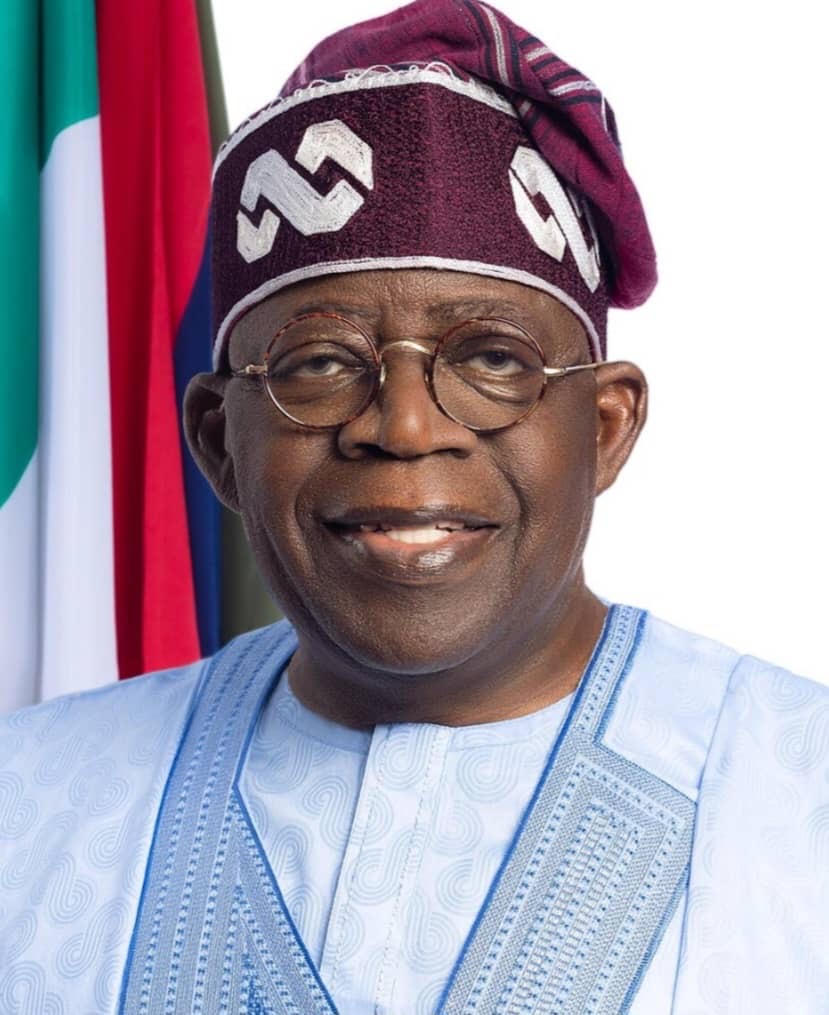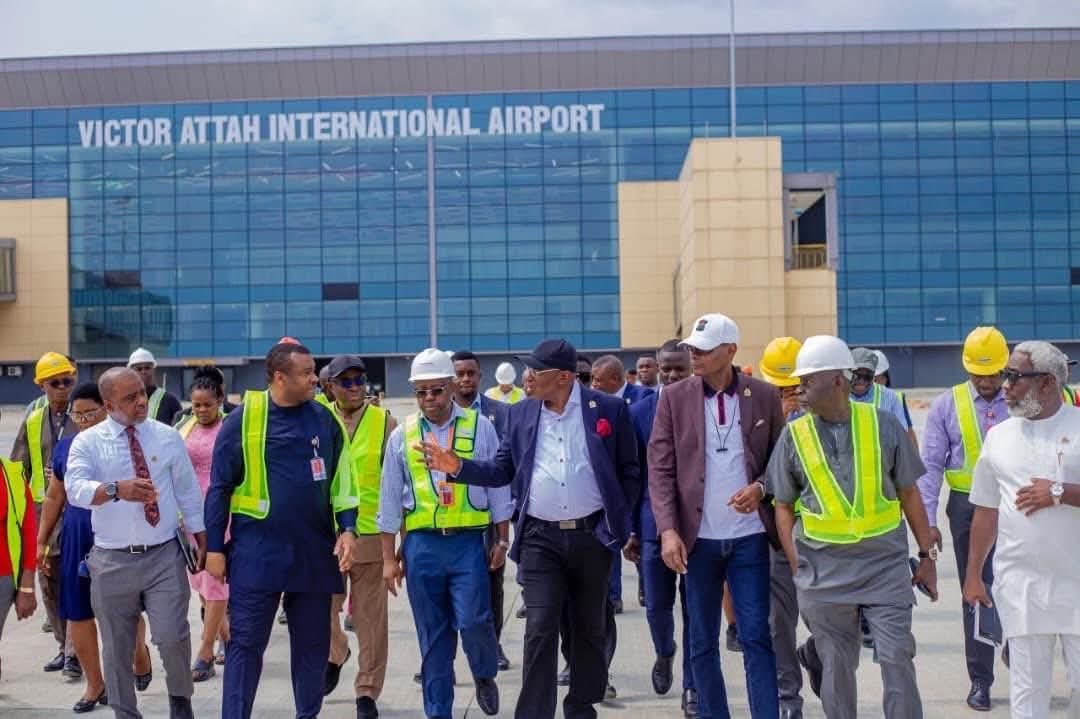President Bola Tinubu.
By Shola Onimago
A silent but defining battle is unfolding in Nigeria’s oil and gas industry,not one fought with guns or politics, but with power and control.
On one side stands the Nigeria Union of Petroleum and Natural Gas Workers (NUPENG), the vocal labour body representing thousands of oil and gas workers.
On the other side is the Dangote Group, led by Africa’s richest man, Aliko Dangote, whose 650,000 barrels-per-day refinery is poised to transform,or perhaps dominate , Nigeria’s petroleum landscape.
This is not a routine industrial disagreement. It is a struggle for the soul of Nigeria’s energy economy , a clash between private capital and public interest, and a fight to protect workers’ rights in a sector too strategic to be cornered.
NUPENG’s Stand: Rights Are Non-Negotiable
At the centre of the row is the alleged refusal of the Dangote Refinery to recognise unionism among its workers. NUPENG accuses the company of blocking union activities, intimidating potential members, and breaching Nigeria’s labour laws which guarantee the right to freedom of association.
Union leaders allege that efforts to register refinery staff and tanker drivers under NUPENG have been frustrated. Workers, they claim, face subtle threats for aligning with labour movements, while management maintains that union membership “is a personal choice.”
“Any company or employer who denies workers this freedom is acting outside the law and against the democratic spirit of the nation,”-Femi Falana, SAN.
For NUPENG, this is unacceptable. Under the Trade Union Act (Cap T14, LFN 2004), all junior employees are automatically deemed members of the appropriate trade union unless they opt out in writing. Section 40 of the Constitution also guarantees this right.
NUPENG President, Prince Williams Akporeha, insists the union “will not fold its arms while a new corporate empire attempts to roll back decades of hard-won workers’ rights.”
Monopoly in the Making
Beyond union rights, NUPENG fears a more profound threat, the rise of a private monopoly in Nigeria’s oil sector.
With its massive refining capacity, sprawling logistics chain, and a fleet of over 4,000 CNG-powered tankers, the Dangote Group now controls nearly every segment of the petroleum value chain: refining, storage, distribution, and retail.
The union warns that this structure represents the embryo of monopoly power.It fears a repeat of what happened in the cement and sugar industries, where Dangote’s dominance shrank competition and kept prices high despite promises of affordability.
“We cannot allow a repeat of the cement story in oil,”
-Afolabi Olawale, NUPENG General Secretary.
Dangote has dismissed the allegations, arguing that over 30 refinery licences have been issued by the Federal Government and that his refinery merely complements existing capacity.
Yet the optics tell another story. The scale of the refinery and its vertical integration have created a structural imbalance that smaller marketers and tanker owners fear they cannot survive.
Echoes from Cement and Sugar
For many Nigerians, the pattern is familiar. When Dangote Cement emerged in the early 2000s, it was hailed as a national industrial success. But as rivals faded, prices soared.
The same happened in the sugar industry, where import restrictions designed to encourage local production ended up entrenching Dangote’s dominance, leaving smaller producers struggling for survival.
The lesson, labour leaders argue, is simple:
Monopoly ,whether public or private, always comes at a cost.
Today, the danger is that the newly deregulated oil sector could be quietly reconsolidated under one private empire.
Tension, Labour Unrest, and Market Anxiety
The confrontation has already rattled the industry. In early September 2025, NUPENG threatened a nationwide strike over alleged anti-labour practices at the refinery.
The move, backed by PENGASSAN, sparked fears of fuel scarcity and price instability.
The Department of State Services (DSS) and the Ministry of Labour later waded in, brokering a temporary truce.
A Memorandum of Understanding (MoU) was signed, guaranteeing workers the right to unionise within a specified period.
But within labour circles, scepticism remains high. Many believe the agreement was a stopgap to calm tensions while Dangote’s market dominance deepens.
Smaller marketers are already complaining about restricted access to supply, delayed allocations, and rising logistics costs,warning signs, they say, of a creeping one-gate control over the downstream sector.
Legal and Constitutional Stakes
At stake are not just labour issues but the very integrity of Nigeria’s economic laws.
The Federal Competition and Consumer Protection Act (FCCPA, 2019) prohibits monopolistic behaviour that “prevents, restricts, or distorts competition.”
It also penalises any conduct that “amounts to abuse of a dominant position,” including forced divestment or fines.
No nation deregulates only to replace a public monopoly with a private one. That would betray the very essence of a free and fair market economy.
A Call to President
Tinubu :Guard the Market, Not the Monopolist
Against this backdrop, there is need for well meaning Nigerians to join NUPENG and other advocates of economic fairness in calling on President Bola Ahmed Tinubu to act decisively.
The administration’s market reforms from fuel subsidy removal to downstream liberalisation must not become a smokescreen for private monopolisation disguised as efficiency.
The Federal Government must:Enforce competition laws under FCCPC and NMDPRA frameworks.Protect small and medium marketers from exclusionary practices.Ensure full recognition of NUPENG’s union rights at the Dangote Refinery.
Diversify refinery licensing and crude access to prevent concentration of control.
“No economy thrives when one man becomes the market,”-NUPENG
President Tinubu must look beyond the excitement of a domestic refinery and see the long-term danger of allowing one corporate titan to dictate prices, access, and opportunity.
The Future at Stake
If unchecked, Dangote’s dominance could rewrite Nigeria’s economic DNA- replacing public monopoly with private empire.Workers could lose their bargaining power. Smaller firms could fold.
Government might one day negotiate not with an industry, but with an individual.If competition and fairness prevail, the deregulated market will thrive.
But if silence and complicity endure, Nigeria risks slipping into a refined form of economic feudalism,where the refinery becomes the new fortress of power.
The Last Wall Standing
NUPENG’s confrontation with Dangote is more than a union struggle; it is a national test of will.Can Nigeria build a capitalist economy that is competitive yet compassionate, dynamic yet democratic?
In a time when power increasingly lies in private hands, NUPENG stands, battered but unyielding- as the last wall between monopoly capital and the Nigerian worker.
The government must now decide:Between an open market that empowers millions or a private monopoly that serves a few;Between workers’ dignity or corporate dominance;Between a refinery for the nation or a nation at the mercy of one refinery.
History, as always, will remember who stood where.
Onimago, SAN, is an Energy Law Consultant and Public Affairs Commentator. He writes from Lagos.










